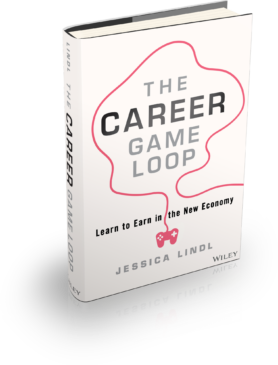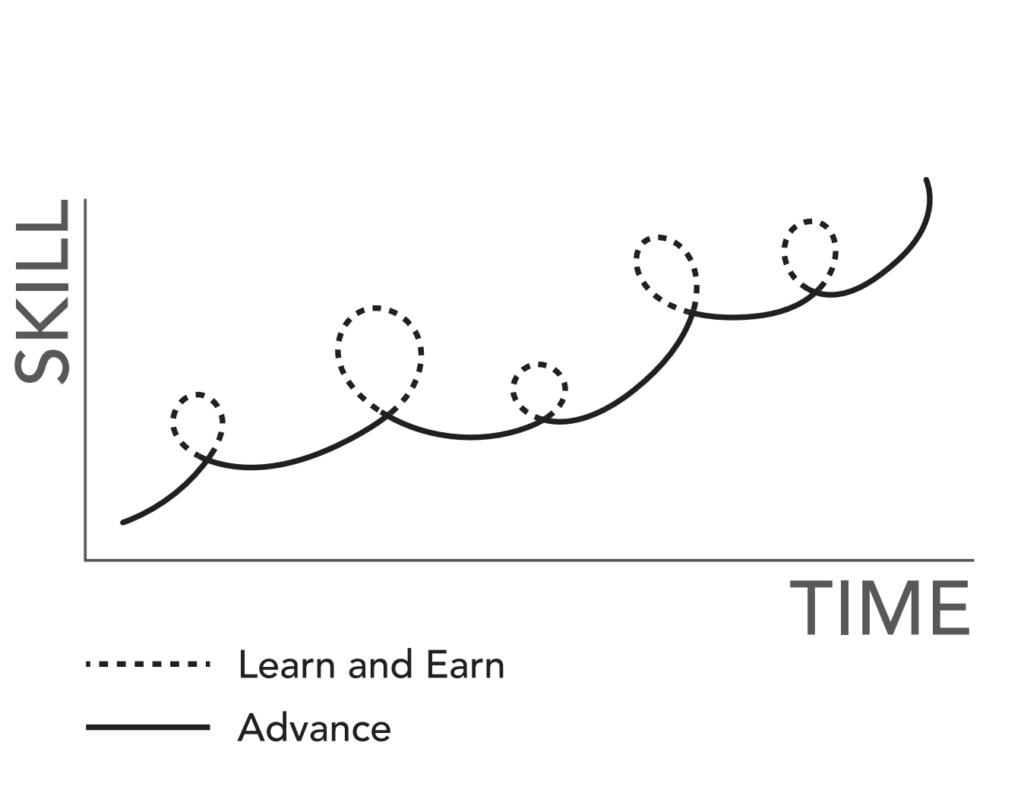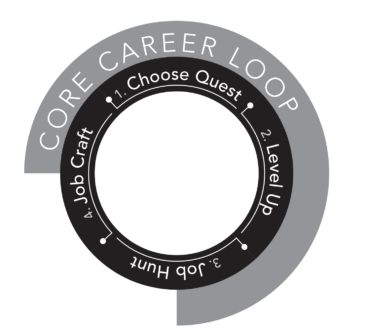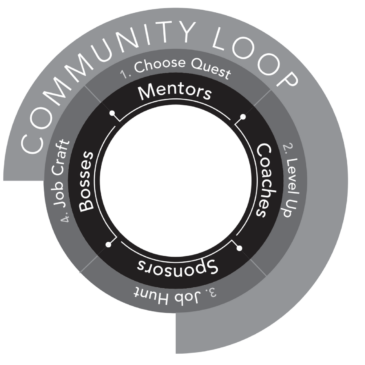
In a world where career paths are no longer linear, how can we prepare young people to thrive amid constant change? At Unity Technologies, and through my book The Career Game Loop, we set out to tackle this challenge by borrowing strategies from an unexpected place: video games.
Today’s learners face a workforce landscape filled with uncertainty. Technological disruption, gig work, AI automation, and remote jobs have rewritten the rules. Traditional models of education and employment no longer guarantee a stable career. Yet, amid this volatility, an opportunity emerges: treating career growth not as a one-time decision, but as a continuous, empowering cycle.
Borrowing from Game Design to Build Career Resilience
At the heart of The Career Game Loop is a model called the Core Career Loop — an iterative cycle that mirrors the “core loops” that power engaging games.

Instead of a static career ladder, we frame career development as:
- Choose Your Quest: Select a career direction aligned with purpose and strengths.
- Level Up: Acquire new skills and experiences.
- Job Hunt: Apply those skills to secure opportunities.
- Job Craft: Shape your role, grow, and prepare for the next loop.

This approach empowers learners to see career building as a dynamic, skill-based journey — much like progressing through levels in a game.
Co-Designing with Young People for Authentic Engagement
We didn’t just imagine what young people needed; we spent almost a decade working with millions of learners around the world who grew up playing video games and navigated their careers successfully. Through workshops, pilot programs, and partnerships with workforce centers and high schools, we co-designed exercises to ensure the model felt accessible, motivating, and relevant.
Students helped reframe career planning with gaming metaphors: resumes became “character stats,” mentors became “guild leaders,” and career milestones were visualized as “boss battles.” This participatory design approach surfaced what young learners need most: agency, relevance, and strategies for bouncing back from setbacks.
Grounded in Research and Learning Science
The “game loop” idea isn’t just catchy. It’s deeply rooted in:
- Cognitive science around iterative learning and mastery
- Workforce development data showing that career pivots happen every 4-5 years, and most of the jobs young people will eventually move into haven’t been invented yet
- Social-emotional learning frameworks, especially around resilience, adaptability, and identity
By linking career-building to intrinsic motivators like achievement, progress, and collaboration — common in games — we foster a mindset of lifelong learning, not just one-time career choice.
Addressing Inequity through Skill-Based Growth
One of our core goals was to challenge the inequities baked into traditional career models. Degrees and pedigree have historically acted as gatekeepers to opportunity. And equally critical, access to influential networks — social capital — often determines who gets ahead.

The Career Game Loop shifts the focus to skills and relationship-building, offering:
- Low-cost pathways to in-demand skills
- Practical tools for finding and approaching mentors, coaches, and sponsors
- Strategies for building “career guilds” — communities of support that mirror in-game alliances
- Playful approaches to expanding your network even when you don’t start with one
By teaching learners how to intentionally build social capital—through informational interviews, peer communities, volunteering, and authentic digital networking—we help them create their own support systems. Every connection becomes a “leveling opportunity,” enabling young people to navigate barriers and design their own paths, even when starting resources are unequal.
Learning to Earn in a World of Change
Ultimately, The Career Game Loop offers a new narrative: your career is not a ladder, but a game — filled with quests, skills to master, allies to recruit, and levels to unlock.
If we can help young people embrace learning, earning, and advancing as a continuous, joyful cycle, we can prepare them not just for their first job, but for a lifetime of opportunity.

Jessica Lindl is the Vice President of Ecosystem Growth at Unity Technologies, leading initiatives that connect education, gaming, and workforce innovation. She is the author of The Career Game Loop: Learn to Earn in the New Economy (Wiley, 2025) and serves on advisory boards for GSV Ventures and Jobs for the Future. Connect with her on LinkedIn and at www.thecareergameloop.com.

